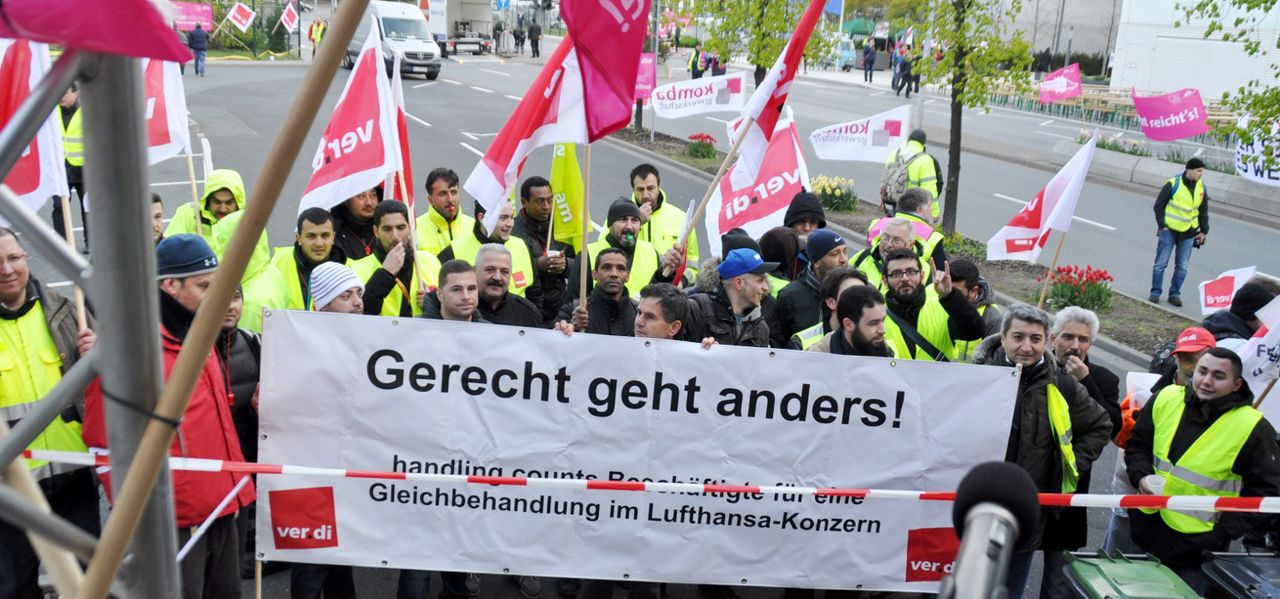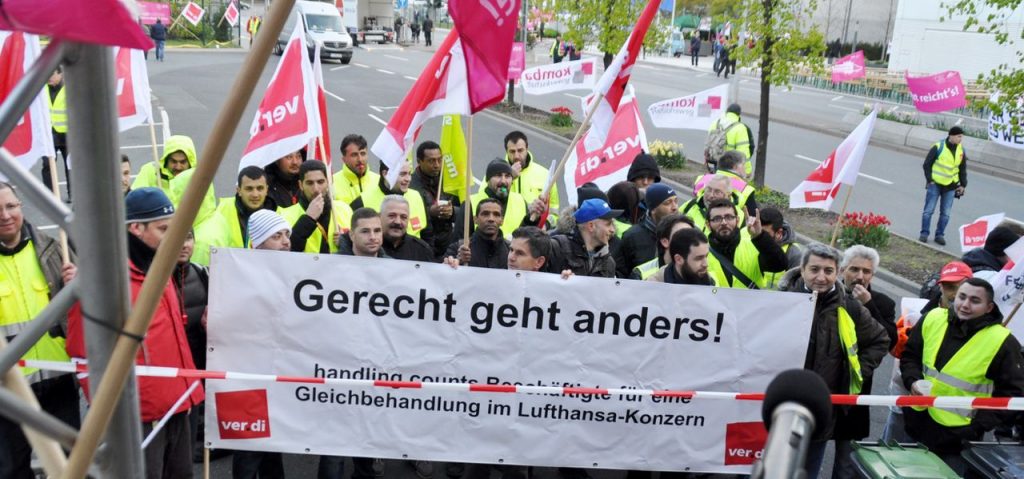
No right to equal pay for equal work, Germany’s highest labour court rules
By Justus Leicht
A ruling by Germany’s Federal Labour Court (BAG), at the end of May explicitly confirmed that the principle of “equal pay for equal work” does not have to apply to temporary agency workers.
The complaint of a temporary worker was thereby rejected after a third hearing, despite an earlier ruling by the European Court of Justice (ECJ). The BAG ruling is not only an expression of class justice, it also bases itself essentially on the role of the trade union bureaucracy, which make this system of modern slave labour possible in the first place.

In principle, temporary agency work means that a temporary worker is provided to a hiring agent to perform work for a limited period of time. The temporary worker is employed by a personnel service provider or temporary employment agency under an employment contract. For this purpose, the temp agency and the hiring company conclude a so-called “Temporary Employment Contract.”
Temporary work is often sold as a first step to regular employment. In practice, however, companies have mostly used it to undermine wages and rights won by their “core workforce.” In 1972, against a background of rising class struggle around the world, the “Temporary Employment Contract” (Arbeitnehmerüberlassungsgesetz, AÜG) was introduced in Germany.
The AÜG was then largely abolished following the introduction of the pro-austerity Hartz reforms and infamous Agenda 2010 by the Social Democratic-Green Party coalition government headed by Gerhard Schröder. The declared aim was to build up a large scale low-wage sector, and this is what has taken place. In the meantime the German ruling elite has created the largest low-wage sector in Western Europe.
The number of temporary workers rose from about 300,000 in 2003 to almost 900,000 10 years later. Today it is slightly lower, at 816,000 according to Statista, and Germany is ranked eighth worldwide in the number of temporary workers.
Temporary workers earn significantly less than members of the permanent workforce. According to statistics from the Federal Employment Agency, as of 31 December 2021, the average monthly gross pay of full-time employees was €3,516, but just €2,083 for temps. This means temporary agency workers earned on average a full 40 percent less in 2021 than “normal” employees!
A key element in this process is the cynically named “Equal Treatment Principle” in the AÜG. It states that the same essential working conditions should apply to temporary workers as to permanent employees—with the following legal exception: “A collective bargaining agreement may deviate from the principle of equal treatment.” In plain language: the principle of “equal pay for equal work” need no longer apply when the trade unions negotiate with the employers to treat temporary workers worse than the permanent workforce.
According to a cynical “reform” of the AÜG in 2017, introduced under the Grand Coalition of the Christian Democratic Union and Social Democratic Party by Minister of Labour Andrea Nahles (SPD), such unequal treatment agreed to in collective bargaining agreements could last up to nine months and, under certain conditions, up to 15 months. According to a study by the industrial trade union IG Metall from the same year, that suits perfectly the vast majority of employers. In the second half of 2016, 58 percent of temporary employment relationships lasted three months or less, and only 24 percent lasted three to nine months.
In another ruling, in September 2022, the BAG gave its blessing to a further expansion of temporary agency work. The BAG stated: “In the case of the temporary [employment] of workers, a collective bargaining agreement concluded by the parties to the agreement in the sector … may stipulate a different maximum [temporary employment] period deviating from the legally permissible period of 18 months. This is also applicable for the temporary worker and his employer (temp agency), irrespective of whether they are bound by the collective agreement.”
In the case in question, IG Metall had agreed a temporary employment period of up to 48 (!) months with employers. This was also binding on the plaintiff, the federal labour judges explained to the temporary worker—even though he was not even a member of IG Metall.
Last December, the European Court of Justice (ECJ) delivered its judgement on temporary agency work. It made clear in its ruling that temporary workers should have the same protection and conditions as their permanent colleagues. According to the ECJ ruling, temporary workers may only be paid less if such unequal treatment is compensated for—e.g., through additional time off.
The BAG judges, who had submitted this question to the ECJ, responded with their typical legal sophistry in their ruling. Such compensation, they said, was the legal right to continued payment of wages during non-hiring periods. In other words, the judges considered as “compensatory” the fact that during the period when a temporary worker is not on loan to any company, the temporary employment agency continues to pay him the agreed wage.
One would think that this would be a matter of course: In the vast majority of companies, wages must continue to be paid to permanent employees even if the employer has no work for his employees. For the BAG judges, it is nevertheless a “compensation” that less money may be paid for the same work.
In the case of the plaintiff, the difference was considerable: instead of the €13.64 gross per hour paid to permanently employed workers, she received just €9.23, a third less per hour.
The BAG judges made no secret of the fact that they are fully aware of the role played by the trade unions. According to tagesschau news, the trade unions “confronted a question from the Federal Labour Court judge, Rüdiger Linck, asking why they conclude collective agreements, which permits worse pay. After all, without the collective agreements ‘equal pay’ would apply. The answer was not forthcoming.’
No wonder that collective bargaining coverage is nowhere as high as in temporary agency work, standing at 98 percent. Temporary agency work highlights the thoroughly corporatist role of the trade union bureaucracy. They are closely intertwined with the state and corporations and play a key role in worsening wages and working conditions while organising the extreme exploitation of workers.
[This article was originally published in WSWS here on June 22, 2023]

